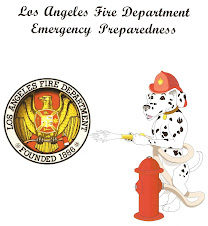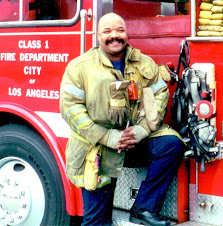
 Above we see an emergency "GO" bag for a small dog or cat. Your pet is just like a child. It is depending on you to include them with your disaster preparedness.
Above we see an emergency "GO" bag for a small dog or cat. Your pet is just like a child. It is depending on you to include them with your disaster preparedness.Here is a more detailed list of the type of items you may consider for your animal.
Pet Disaster Supplies Kit or Go-Bag
It may include:
Copies of medical records including vaccination dates, stored in a waterproof container
Medications and information about each medication. List each animal separately, including dose and frequency for each medication. Include the name and number of your veterinarian
Information on diet. List the diet for each pet, including what not to feed in case of allergy
Information about any behavioral issues
A first aid kit (include flea and tick treatment and items recommended by your veterinarian)
Collapsible cage or carrier for each animal, labeled with your contact information. (Cat carriers should be big enough to hold a small litter pan and food dishes and allow your cat to comfortably use the litter and to lie down. Dog kennels should be spacious enough to hold two non-spill bowls and allow room for your dog to stand and turn around.)
Muzzle and leash
Handling gloves
Current photos of your pets in case they get lost. Include yourself in some of the photos as further proof of identity.
Information about your pet's species, breed, age, sex, color and distinguishing traits
Proof of ownership (registration and microchip information; adoption papers)
Food and water for at least three or more days
Food bowls, cat litter/pan/scoop, and manual can opener
Plastic bags, newspapers, containers and cleaning supplies
Pet beds, toys and treats to make animals feel comfortable















